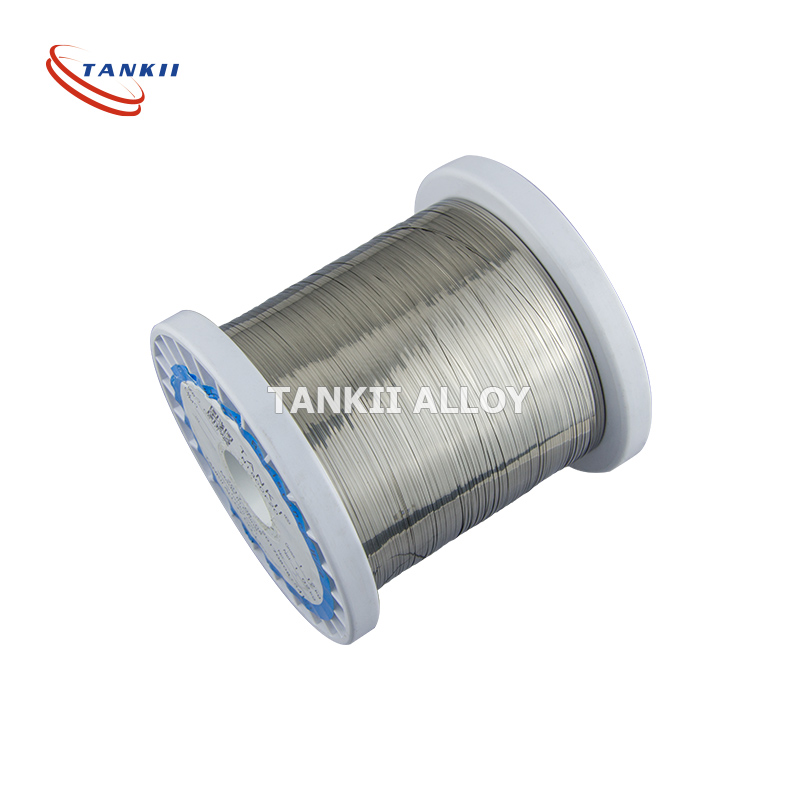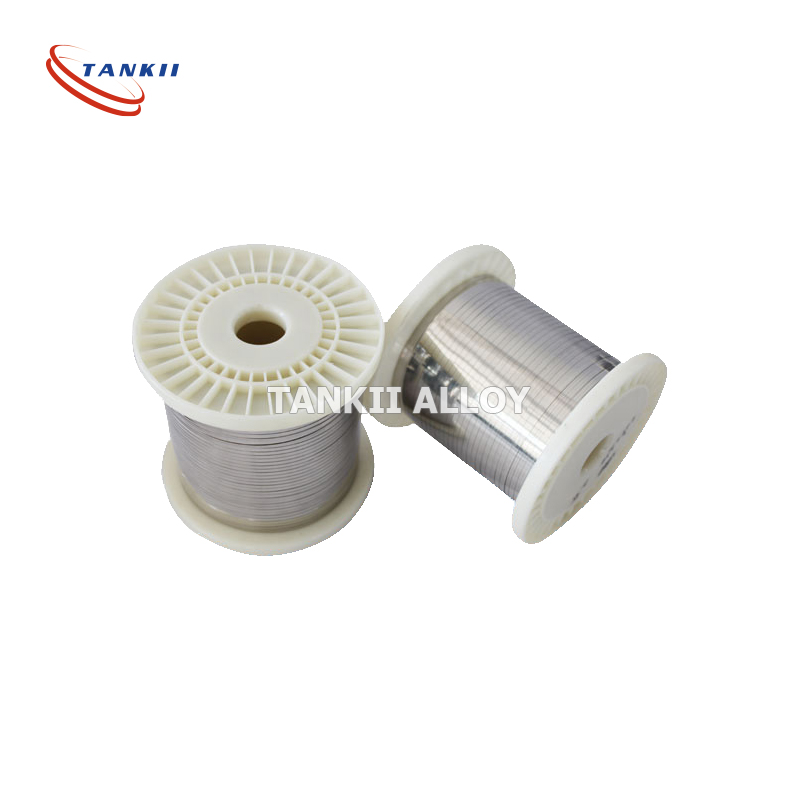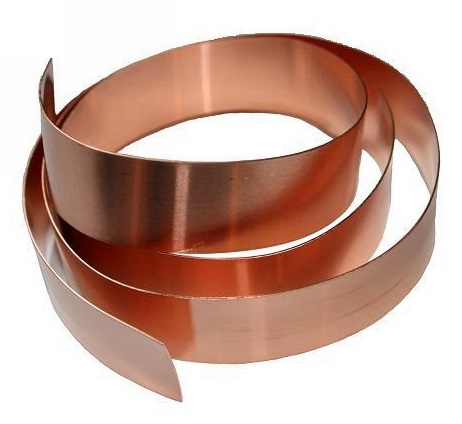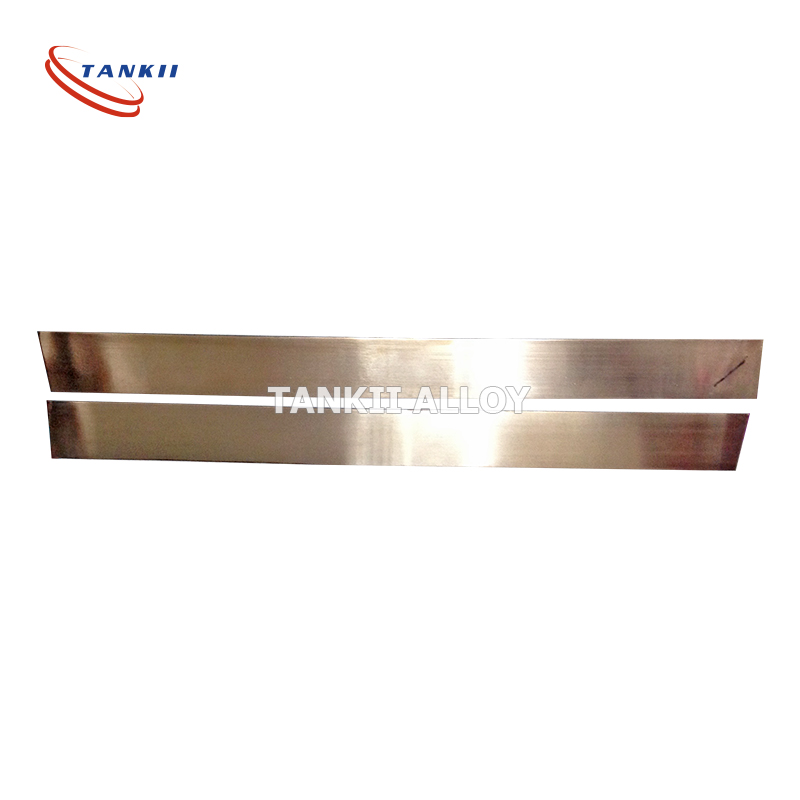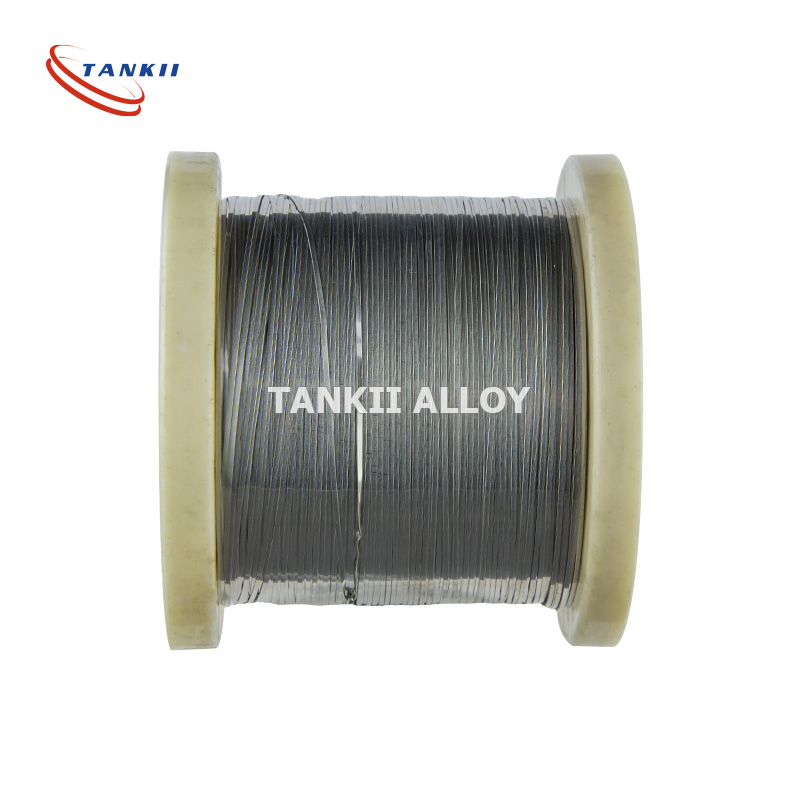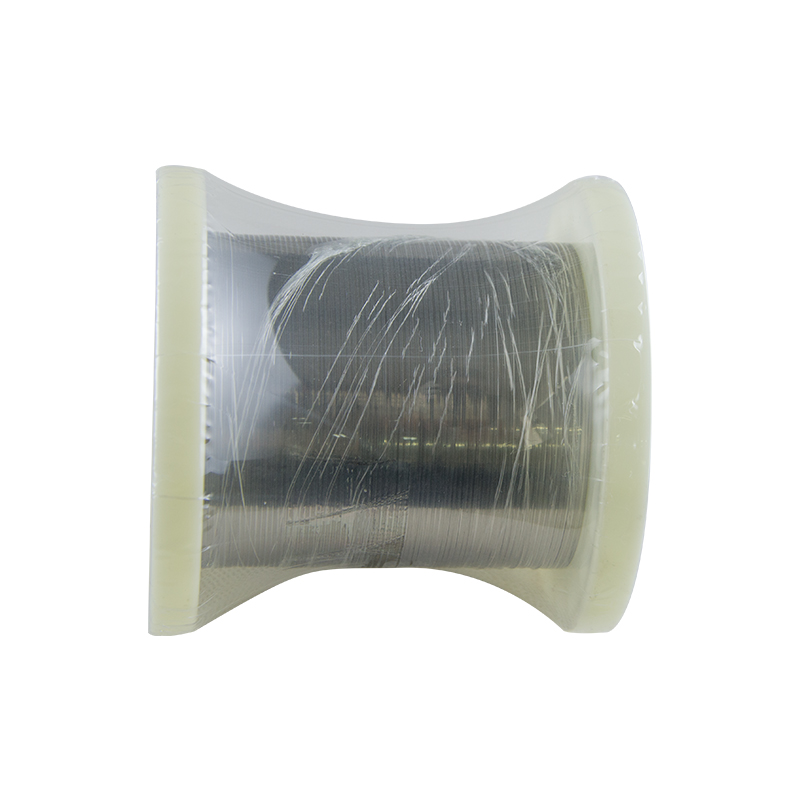Welcome to our websites!
Constantan Eureca Wire / Flat Wire
Constantan Eureca Wire / Flat Wire
Product Description
Constantan Wire with moderate resistivity and low temperature coefficent of resistance with a flat resistance/temperature curve over a wider range than the “manganins”. Constantan also shows better corrosion resistance than the man ganins. Uses tend to be restricted to ac circuits.
Constantan wire is also the negative element of the type J thermocouple with Iron being the positive; type J thermocouples are used in heat treating applications. Also, it is the negative element of the type T thermocouple with OFHC Copper the positive; type T thermocouples are used at cryogenic temperatures.
Chemical Content, %
| Ni | Mn | Fe | Si | Cu | Other | ROHS Directive | |||
| Cd | Pb | Hg | Cr | ||||||
| 44 | 1.50% | 0.5 | - | Bal | - | ND | ND | ND | ND |
Mechanical Properties
| Max Continuous Service Temp | 400ºC |
| Resisivity at 20ºC | 0.49±5%ohm mm2/m |
| Density | 8.9 g/cm3 |
| Thermal Conductivity | -6(Max) |
| Melting Point | 1280ºC |
| Tensile Strength,N/mm2 Annealed,Soft | 340~535 Mpa |
| Tensile Strength,N/mm3 Cold Rolled | 680~1070 Mpa |
| Elongation(anneal) | 25%(Min) |
| Elongation(cold rolled) | ≥Min)2%(Min) |
| EMF vs Cu, μV/ºC (0~100ºC) | -43 |
| Micrographic Structure | austenite |
| Magnetic Property | Non |


Write your message here and send it to us





